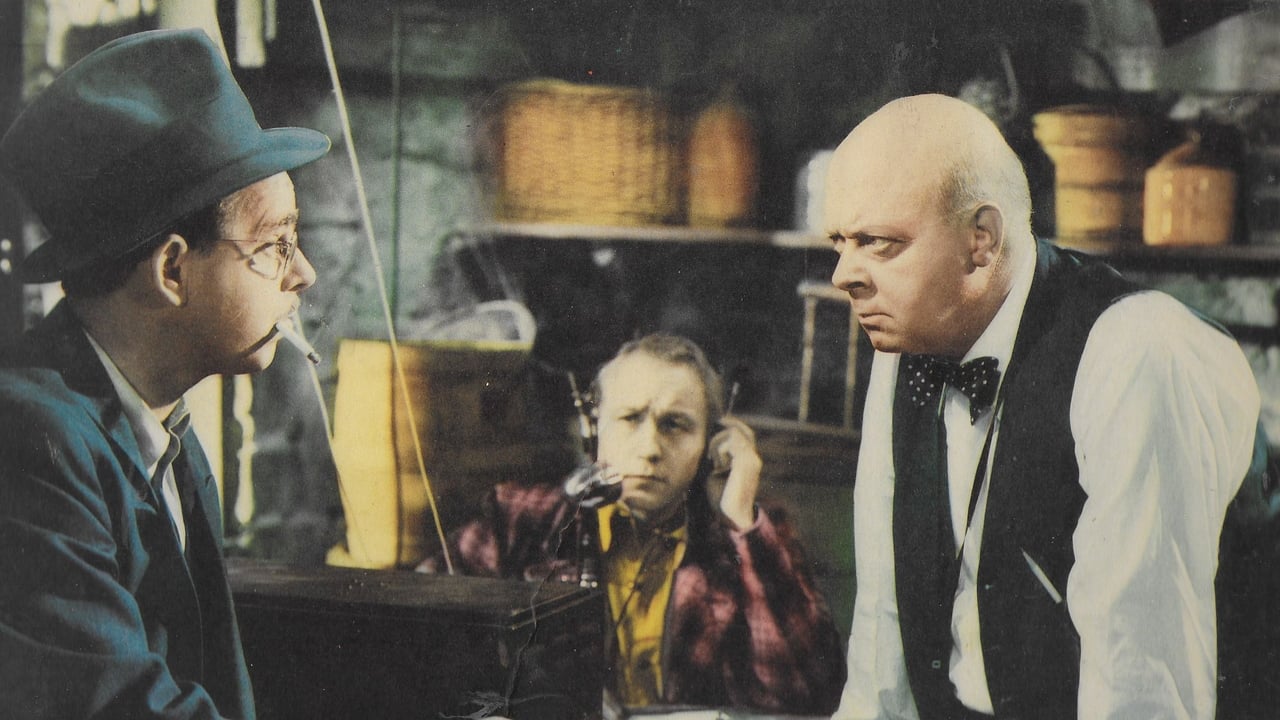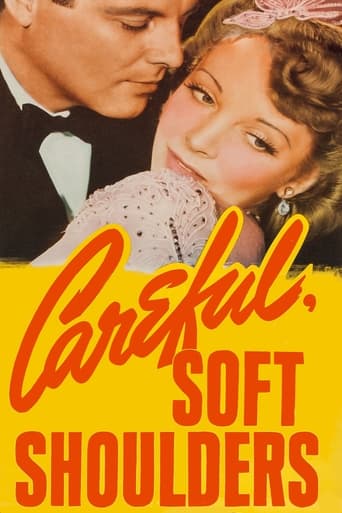

Quiet please! The enemy maybe listening! It's December 7th 1941, and at a big social event, it is announced that Pearl Harbor has just been attacked. Flighty Virginia Bruce says so everybody around her can hear her that she wouldn't mind becoming a spy like Greta Garbo, really meaning Mata Hari. She comes home to find portly Aubrey Mather waiting for her, offering her exactly that chance. However the subject of her spying is her sparring partner boyfriend, James Ellison, and Bruce is unaware that Mather has his own secret agenda. When Bruce's sister Sheila Ryan disappears, she realizes that she's in over her head, and involves Ellison and helping to get her out of this jam which leads him headlong into danger as well. There were many espionage dramas of this nature made during World War II, and while this one may not be one of the most realistic, it certainly is entertaining. Bruce's character isn't exactly the brightest bulb among female spies, and she comes out of it learning that you don't always are qualified to get the offers that are given to you. Mather's character was obviously influenced by Sydney Greenstreet who had just scored a big success in "The Maltese Falcon". The film mixes Espionage drama with verbal comedy, and one funny sequence has Bruce dealing with a paddle boat wheel. Still, it's a mixed bag that has some amusing moments but the characterization of Bruce as a dingbat is a bit off putting, with her potentially doing more harm than good.
... View MoreA very interesting movie. Screenwriter Oliver H.P. Garrett (City Streets, A Farewell to Arms, The Story of Temple Drake, Manhattan Melodrama, The Hurricane, Duel in the Sun, Dead Reckoning et al) directed only one film. This is it."Careful, Soft Shoulder" (the movie's correct title, an obvious pun on a commonplace roadside sign of the period) is both a fascinating and entertaining "B"-feature. Garrett's script employs a first-person narrative and his direction sometimes underlines this by the use of a first-person camera. The direction is not by any means always this imaginative, but Garrett does vary his style from sequence to sequence so that it never becomes monotonously routine.Thus one sequence might be lensed with over-the-shoulder reverse angles between the two protagonists, while others intersperse a medium establishing shot into a waist-length two-shot. The attentive viewer will also notice the skillful use of occasional close-ups, especially towards the end of a long scene. Generally, there's a minimum of camera movement. The set-up angles are usually straightforward eye-level. When this angle is varied, it's always for a solid dramatic purpose, never for sheer ostentation. An excellent example can be found in the sequence that begins with a tilted overhead shot of Miss Bruce lying back on her bed as she talks on the phone. She kicks her slipper off and it lands on the bed beside her an amusing little piece of business that almost justifies the tilted angle by itself. However, the camera then dollies in for a close-up as Miss Bruce moves to a crouching position and turns her head. The camera then follows the direction of her gaze, coming to rest on Mather's umbrella which dramatic revelation is of course the complete and perfect justification both of the introductory angle and subsequent camera movement.Garrett's screenplay takes in a lot of territory, beginning with the wartime Washington accommodation shortage, moving on to U.S. involvement in the war, and ending up with a trio of delightfully unlikely spies. Fortunately Nick De Maggio's film editing is sharp enough to give the film plenty of pace. Charles Clarke's photography shows signs of haste, but the sets are attractive and production values generally are well above average for a film of this class.Virginia Bruce gives an excellent comedy performance as the dim-witted dupe of the delightfully, casually sinister Aubrey Mather and models an eye-catching number of fashionable Herschel costumes.What a pity that Garrett did not pursue his career as a director! For a novice, this one shows uncommon skill. Yet here he is to some extent constrained by a limited budget. What wonders might he have performed on an "A"-feature especially one derived from his own screenplay?
... View More